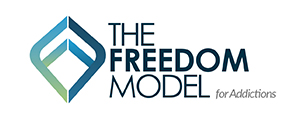Addiction & Treatment
Research
2004 - BRI Defines Learned Connections: A Cultural Paradigm
Words and Definitions Matter, When Your Life Depends on it.
Obviously, by 2004 Baldwin researchers had figured out that using alcohol and/or drugs or choosing not to use alcohol and/or drugs were both motivated by one's pursuit of happiness. In November 2004 BRI published the 10th Edition of the Jude Thaddeus Program. By the time the 10th Edition was written Baldwin researchers had arrived at a better understanding of motivation and de-motivation with respect to alcohol and drug use behaviors. For example, in the Introduction of the 10th Edition a new section was added entitled Happiness. This was not a new concept to the researchers. In fact, one of the researchers had developed this technique for helping with personal problems in his life struggles as early as June 1976. And, although making a "happiness list" had been in a section of the program known as Life Movements since 1992, the first time it was given a prominent presence was in the 10th Edition's Introduction. There it was:
"Happiness is the greatest motivating factor in the human condition. The substance abuser continues to drink and drug for one simple reason: no one has convinced him/her there is a way of living sober that is better..."
This was significant because the drug and alcohol industry steadfastly held and continues to hold onto the idea that the "cause of" people using drugs and alcohol is because they are unhappy, depressed, psychologically disturbed, maudlin, grieving, frightened and a whole host of other emotionally negative "causes." Baldwin researchers coined this relationship between the supposed causes of substance use (i.e. depression) and the use of substances: "Learned Connections." BRI researchers recognized based on empirical evidence, that the drug and alcohol treatment industry was (and is) exactly 180o out of phase with reality in regards to promoting these learned connections as "causes" for substance use. It is true that many people who are depressed use drugs and/or alcohol. Why? Because it gives them some level of happiness, even if only for a little while. But drug and alcohol users' emotional negativities do not "cause" users to use. Their emotional negativities are reasons drug and alcohol users choose to use, so as to experience some fleeting happiness. Furthermore, it's also true that people who are not depressed use drugs and/or alcohol because it gives them some level of happiness. Hence, it became clear that in both conditions, depressed or not depressed, were not motivating factors to either use or not use, but rather the motivation to use or not use was exactly the same for both the depressed and not depressed conditions: the pursuit of happiness.
Although this was most certainly a watershed discovery, there were many other significant changes in the 10th Edition of the Jude Thaddeus Program. The 10th Edition debunked many of the absurd ideas that grew out of Alcoholics Anonymous and the drug and alcohol treatment culture. To wit the typical AA terminology, words like "denial" "disease," "co-dependency," "enabler," "tough-love," and "intervention" became popular. None of these terms made any sense, but they became paramount in discussions with family members, friends and courts who found themselves in the unenviable situation of discussing some sort of treatment for their substance user.
In addition, suring this period, Baldwin Research Defined and Researched:
- BRI Explains: Denial
- BRI Explains: The Definition of Alcoholism and Alcoholic
- BRI Explains: The Mind is Not the Brain, and the Brain is Not the Mind
- BRI Explains: Is Addiction a Disease?
- BRI Explains: The Myths Surrounding Cravings
- BRI Explains: Is Addiction Like Diabetes?
- BRI Explains: Is Addiction Like Heart Disease?
- BRI Explains: Is Addiction Like Cancer?
- BRI Explains: The Definitions of Recover, Recovering, and Recovered
- BRI Explains: The Myth of Codependency
- BRI Explains: Enabling and Tough Love
- BRI Explains: The Efficacy of Interventions


